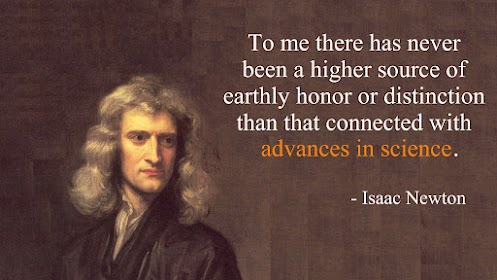Science Seen Physicist and Time One author Colin Gillespie helps you understand your world.
Does Physics Matter?
In previous posts I’ve quoted leading physicists as saying fundamental physics is in trouble. But why should you care how well (or how badly) physics goes?
Here’s short answer #1: It supports a lot of paychecks. How this works may not be obvious so let me illustrate.
In the late 1600s Isaac Newton kicked off the first round of the physics revolution. He more or less invented optics, mechanics and gravity, not to mention co-creating (with Gottfried Leibniz) the calculus. His discoveries launched more than two centuries of economic growth so that leading weekly, The Economist, could say recently, ‘The modern world was made by Isaac Newton.’
Starting in 1905 Albert Einstein re-made the modern world. In that single year he launched quantum physics with the photon, showed that matter is made of atoms as had been speculated for 2,000 years, transformed our concepts of space and time, and revealed that mass is just a form of energy. His discoveries laid the ground for the last century of economic growth. Today most jobs, even the most menial, rely upon results of quantum physics for example.
Progress in fundamental physics powers our economy. But there’s reason for concern. Fundamental physics is almost at a standstill just when climate change begins to make life more expensive. We need new energy technology. We must adjust our roads and rails and shores to changes. Soon we may see whole populations moving. These and other dislocations will be costly. Worldwide, cheap resources are running low and the economy seems set on Slow. This would be a good time to renew the physics revolution.
One way or another we all pay for physics and we all share in its successes and its failures. Which leads me to short answer #2: Why should we care? Because new fundamental physics offers the best hope for future generations, hope for an opportunity to build a better life.
So how would I―with a view to growing their economy―fund fundamental physics? No successor for the LHC from me, that is for sure. I’d bet my bucks on all kinds of astronomy to observe those powerful experiments that we could never do, but we can see almost for free up in the sky.
Sources
“Isaac Newton: The God of Science”, The Economist, 21 August 2003, http://www.economist.com/node/2003425
“The Annus Mirabilis of Albert Einstein”, Science Reference Guides, Washington: The Library of Congress, http://www.loc.gov/rr/scitech/SciRefGuides/einstein.html
Other reading:
“Energy Technology Perspectives 2014”, Paris: International Energy Agency, http://www.iea.org/etp/
Colin Gillespie (2013), “Farewell to Arms”, in Time One: Discover How the Universe Began, New York: RosettaBooks, p. 435, http://www.rosettabooks.com/book/time-one/, excerpted at http://www.timeone.ca/chapters/farewell-to-arms.pdf


No comments yet.